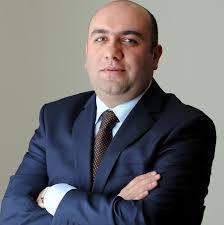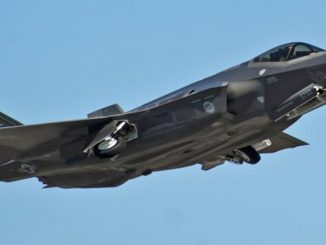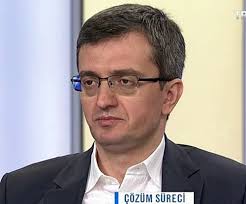
By: Çetiner Çetin
Soon after US election results were announced, European leaders, who had belittled Donald Trump and did not deem him suitable for presidency, had to consider that he will rule the world’s sole superpower. Likewise, very few countries, including Turkey, which were against Hillary Clinton’s bloc, are quite satisfied with Trump’s victory. Now the question is what will change in the global equitation under Trump’s administration.
Immediately after the final election results, a concrete feeling that Trump’s astounding victory could fundamentally change the global order emerged. But no anti-Trump European leaders could dare to predict how this change would happen in such an unpredictable period. Although they did not want, allies congratulated Trump for his victory which he won in a democratic way, conveying the message that things would continue the same way. Although Britain discussed preventing Trump from visiting the country last January, British Prime Minister Theresa May said the US and UK have a special and permanent relation on the basis of freedoms and democratic and entrepreneurial values, meaning that unpleasant things of the past will be forgotten.
First, it would be useful to make a general assessment of the US’s foreign policy equitation and Middle East policy. As required by traditions, new US president cannot fully object to the republican tendency in main issues. So, he is likely to head a republican policy which suits national policies and foreign issues. As is known, the methods and styles adopted in foreign affairs have the same goals even if they are the most important difference between republicans and democrats: The US will dominate the world, maintain its superiority and success, oppress enemies and keep control of balances through military or soft power.
The question of who would be the next US president was very important for Middle Eastern countries. This was because the US presence in the Middle East is the most important argument for the internal politics, economy and energy policies of Middle Eastern countries. However, I must point out that the biggest misconception and miscalculation was made by Middle Eastern leaders. After it became certain that the republicans’ candidate would be Trump, even republican couriers who conveyed important messages to the Middle East did not consider Trump’s victory possible. Therefore, all political calculations, scenarios, and investments were made on Clinton. Now, things have turned the other way around.
Trump’s election conveyed a simple message to the US’s Middle Eastern allies: “It is time to take care of ourselves.” Barack Obama tried to make up for the interventionist legacy of his predecessors and to wipe out the US’s footprints in the region by withdrawing troops from Iraq and Afghanistan during his two terms. Regional authorities expected that Clinton would restore or stop the US’s breakaway. Now they will see this breakaway is dramatically gaining speed. This does not mean the US will not intervene in the region under Trump’s rule.
As the US’s relations with all major Middle Eastern countries have been worn out in recent years, with the exception of Iran, very few leaders in the region will longingly remember Obama. Most of these leaders were disturbed by Obama’s ever-changing ideas about Syria and felt that he secretly sympathized with Iran although he denied it.
I must stress that embarking on military adventures outside cannot be regarded as a harsh or moderate attitude of any US president. Bill Clinton dealt the heaviest blow to the Palestinian cause and unity through the deals which were held under his auspices in Oslo. From my perspective, perhaps Obama has been the most dangerous and unsuccessful president of recent years. This is
because the Arab Spring, which led to the greatest destruction in the Islamic world without the bloodshed of American of American soldiers, broke out in his period. When Erbil-Ankara relations gained an important dimension in all areas, the Obama administration’s approach toward the Kurdistan Regional Government (KRG) should have been criticized. He sided with Nouri al-Maliki, who aspired for the Saddamization of Iraq, against energy and pipeline projects which Erbil wanted to actualize with Ankara. The Obama administration ostracized the KRG from Syria, but supported the PKK.
I must note that it would not be easy to predict what Trump will do and whether he will ensure peace and reconciliation, which he promised, in destructive ways like Obama or other ways. The outlines of some of the Trump administration’s policies are already clear.
In the election campaign, Trump said it was not the US’s role to support human rights and democracy abroad, displaying an attitude which pleased Egyptian authorities while tens of thousands of regime opponents are in prison. Moreover, he stated that Clinton is one of the founders of DAESH and she spreads chaos in the region. He assessed this as an attempt to escalate the anti-DAESH war, revealing the nasty aspect of his foreign policy perspective. Also, Trump’s description of Bashar Assad as a strong player fighting against DAESH was not welcomed by Turkey. In short, Trump’s foreign policy management will be full of surprises.
Trump’s Turkey perspective
Turkey thinks the Obama administration ignored all of its demands in Syria, sabotaged its plans to build a safe zone and supported the PKK on the battlefield. In addition to its direct political and indirect military support to the PKK, ignorance of Turkey’s interests in Iraq, and efforts to marginalize Turkey’s role in the region, the US did not side with Turkey in the fighter jet crisis which was experienced with Russia. Moreover, it remained indifferent to the perpetrators of the July 15 coup attempt and rejected to extradite the terrorist leader, Fethullah Gülen.
For three years now, Turkey has defined Obama’s policy as “weak” and “hesitant.” This policy, which strengthened Russia and Iran’s influence in the region against Turkey, failed to bring a solution to the Middle East’s challenging issues. Therefore, Ankara was worried that Clinton would maintain Obama’s policies. Turkey hopes that Trump will resolve these issues and the Syrian crisis which consumed Turkey in terms of politics, economy and security. These are the first signals given by the US.
Ankara expects trust from the US
Ankara-Washington relations were increasingly strained in the last 17 months of Obama’s second term. The US’s latest statements about Gülen’s extradition to Turkey was the last straw for Ankara. Turkey expects credibility and mutual trust from the new US president. Turkey and Turkish authorities do not have trust in the former US administration which left them in the lurch many times.
Throughout the election campaign, Trump did not voice a single negative criticism of Turkey. But Clinton touched on Turkey many times before the election and every statement she made boosted Turkey’s sensitivity. Many times she talked about providing weapons to the PKK and Democratic Union Party (PYD). This was an adequate cause for Ankara to want her failure in the election.
The failed July 15 military coup attempt underlies Turkey’s attitude on the US election. Ankara accused the US of supporting Gülen in the coup attempt. There was plenty of data about the US’S involvement in the coup attempt. Moreover, it met Gülenist Terror Group (FETÖ) members during
the election campaign. So, President Recep Tayyip Erdoğan displayed a harsh attitude on two issues:
1. He adopted a harsh attitude on Obama and requested for Gülen’s extradition. Otherwise, he would be an enemy of Turkey.
2. In retaliation for Obama’s attempt to topple Erdoğan, he accelerated rapprochement with Russia.
If Clinton had won, this would mean Obama’s approach on Turkey would continue. This approach includes providing weapons for the PKK and overthrowing popularly-elected Erdoğan – which Erdoğan can never tolerate. Clinton’s victory would mean the continuation of chaos and vulnerabilities in Turkey-US relations.
It was natural that Erdoğan was one of the first leaders to congratulate Trump. Perhaps this will be instrumental in turning a new page in bilateral relations. Erdoğan will quickly make use of Trump’s success in order to strike while the iron is hot.
Prime Minister Binali Yıldırım’s first speech after Trump’s victory was about Gülen’s extradition. As is known, Trump condemned the military coup attempt in Turkey, saying that many American army officers were also involved in the coup attempt and that he would later announce their names. Ankara will have serious expectations from Trump’s attitude on the coup and its aftermath. In this context, the first direct comment of Trump’s administration about Turkey came from Mike Pence, Trump’s running mate. He said, “Turkey is the US’s most important ally in the region. We will bring our relations with Turkey to a better stance just like in the old days.” Ankara quickly welcomed the statement.
Turkey has been quite relieved after Clinton’s failure. Although it is slightly worried about Trump’s administration, it hopes to fix and improve relations.
*Çetiner Çetin is a Turkish journalist. He wrote this article exclusively for the Middle East Observer on Monday, Nov. 16, 2016.



